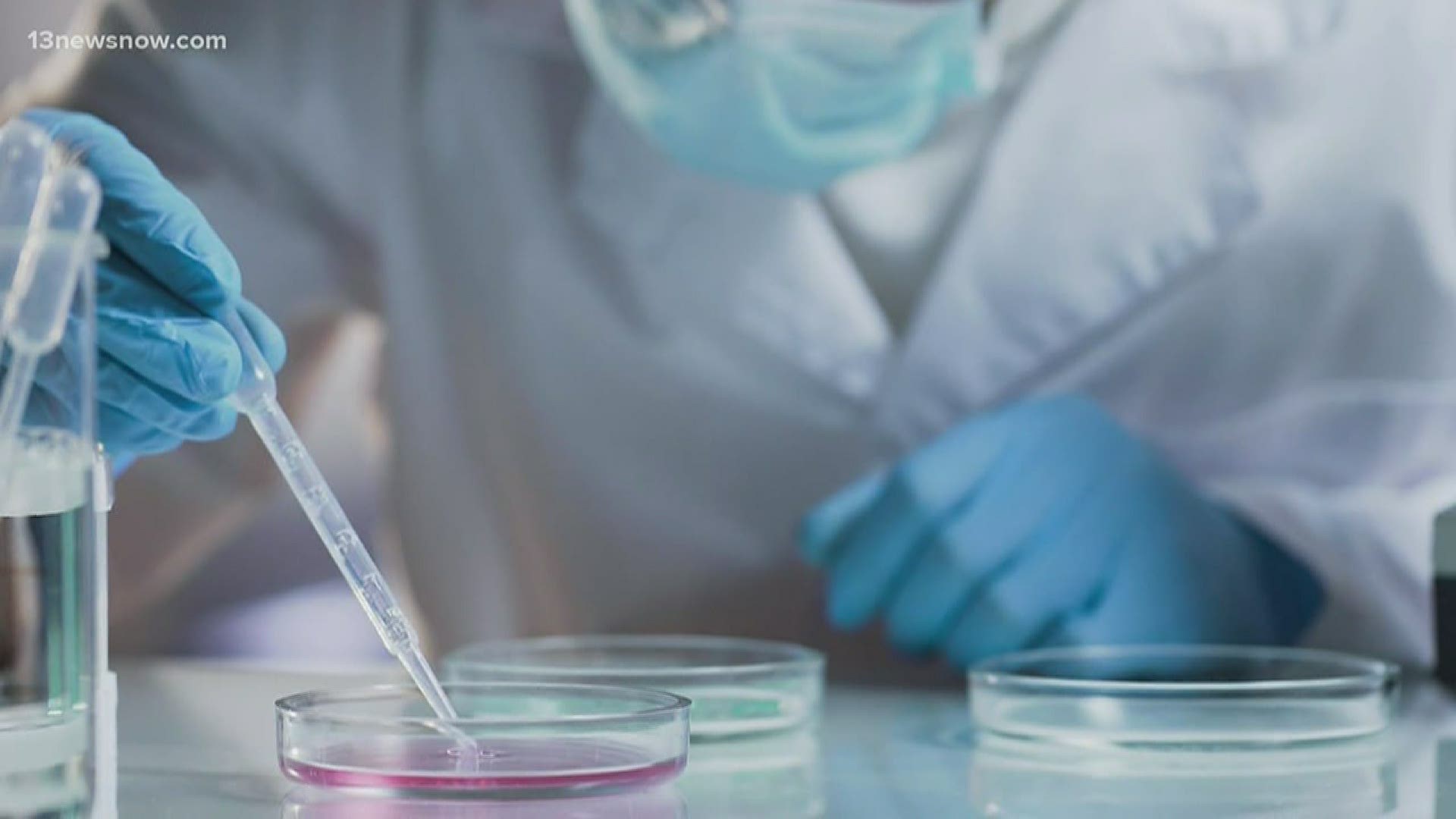NORFOLK, Va. — As health officials across the world work quickly to develop a vaccine for COVID-19, one of the big questions is: how soon will it become available?
Even as researchers work at a record speed, an Eastern Virginia Medical School expert said it won’t come as quickly as some might have hoped.
During a Senate hearing on Tuesday, Dr. Anthony Fauci (director of the National Institute of Health and Infectious Diseases) said "don't bet on" having a vaccine in time for schools to reopen in fall of 2020.
“The idea of having treatments available, or a vaccine, to facilitate the re-entry of students into the fall term would be something that would be a bit of a bridge too far,” said Fauci.
There are still a lot of unknowns and a long road ahead.
RELATED: How are vaccines made?
Dr. Edward Oldfield, a professor at EVMS and an Infectious Diseases specialist, said researchers are only at the start of the race.
“This is not going to be a quick process, and we don’t know whether these are 'protective antibodies' or 'enhancing antibodies,' which would be bad,” said Oldfield.
Simply put, doctors don't know yet if people who had the new coronavirus are immune to catching it a second time.
“Part of the issue is that in the past, vaccine candidates have had a 90-percent failure rate," Oldfield said. "In other words, they never came to market.”
Oldfield said researchers across the globe are investigating about 100 different vaccines to fight the pandemic.
Only about a handful have made it into the trial phase. One of the candidates is Moderna Therapeutics, which was granted priority review status from the Food and Drug Administration.
When Moderna’s vaccine is ready, it’ll be rapidly reviewed.
“Moderna’s the furthest along, but they’re only just through phase one,” said Oldfield.
“They’ve got phase two, a big phase three trial with lots of people, we have to see whether it’s actually protective and that it doesn’t enhance infection," he explained. "Then, finally, you’ve got to take this product and ramp up production, and there are 7.6 billion people in the world. The ramp-up is gonna be extraordinary.”
Dr. Oldfield said he anticipates a vaccine may not become available until late spring of 2021. When that time comes, the challenge of distribution will arise.
"It may be produced in China and their priority may be their own population, or it may be a German vaccine and their first priority will be to protect Germans. And then the issue will be, do we protect people who have the worst outcome?" said Oldfield.
While a vaccine offers hope for a solution, Oldfield said the immediate solution is to find a treatment proven to be more effective than Remdesivir.

